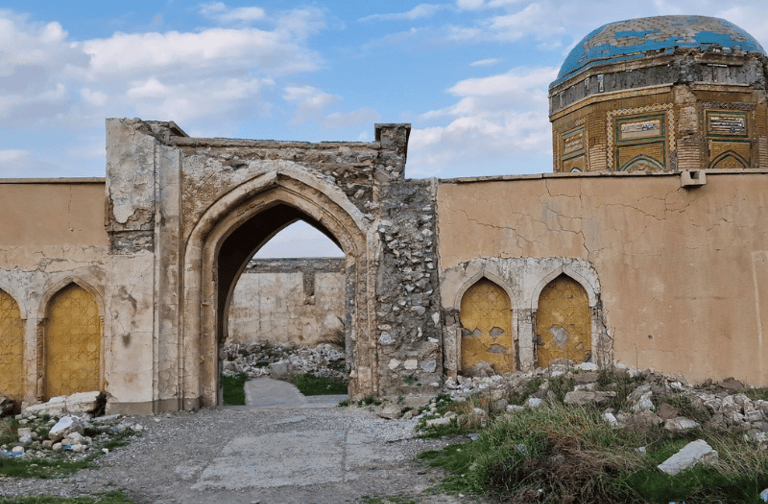Team: Dr Mustafa Mehsen Aljubory, Dr Khalil Khalaf Al-Jubouri, Muneba Khalaf Muhamed
Duration: 12 months from 1 December 2023
Minorities in Kirkuk
Kirkuk is a highly socially and ethnically diverse city. Its population of approximately 1.4 million includes Arabs, Kurds and Turkmen as well as a range of smaller minority communities. Whilst an estimated 90% of its population is Muslim, significant numbers of Christians, Sabians, Kakais, Chechens, Zoroastrians, Baha’is, Jews and other groups have long contributed to its multiethnic and multireligious social fabric.
Preserving the heritage of religious and ethnic minorities in Kirkuk is vital for safeguarding their histories as well as ensuring the province’s future stability and social cohesion. Protecting and valuing cultural diversity serves to strengthen individuals’ sense of belonging and promotes tolerance across communities. The city’s future must be premised upon ensuring that its historical identities are respected, cherished and integrated, rather than marginalised or forgotten.
In the broader Iraqi context, however, Kirkuk’s minority communities have faced mounting challenges in recent decades. Prolonged political divisions, a lack of protection of minority rights and repeated episodes of conflict have led their heritage extremely vulnerable. The violent entry of ISIS into the region in June 2014 threatened the very existence and survival of these minority groups. The legacies of these episodes of violence are devastating, with long-lasting legacies that include exclusion, marginalisation and the threat of erasure. Without urgent redress, Kirkuk risks losing the cultural pluralism that has long defined its social and historical identity.
The Minorities in Kirkuk project was developed within this broader context to celebrate and safeguard the cultural heritage of these groups and to highlight their voices precisely at a time when they were in danger of disappearing from the city’s cultural map. Led by researchers at the University of Kirkuk, the project worked across academic, community and policy arenas to document and disseminate knowledge of minority histories. In doing so it sought to strengthen social cohesion, heighten awareness of cultural rights and ensure that minority heritage is treated as an invaluable and integral part of Kirkuk’s future.
Work Strands
1. Raising awareness in the society and academic community of the necessity of the freedom of persons belonging to the minorities to enjoy their own culture, profess their religion, practice their rituals, or use their language in communication with other members of their group.
2. Supporting efforts of cultural ownership of all religious minorities, especially in the areas from which they were forcibly displaced by ISIS terrorist gangs, as well as urging the government to take the measures it has taken with regard to compensating minority victims as a result of terrorist operations and violations committed by ISIS terrorist gangs.
3. Enhancing the role of the university in preparing curricula on the history, heritage and religions of minorities and referring to what they have in common through scientific research and encourage academic researchers to present researches at the university that support the minorities in Kirkuk.
4. Preserving the existence of these minorities by preserving their cultural heritage, as it represents their identities.
Project Outputs
Publications: two forthcoming peer-reviewed academic articles, a popular article in the College of Arts at Kirkuk University’s Al-Wasat University Newspaper, and a short piece in Al-Sabaah newspaper
Booklets: four illustrated booklets produced, each dedicated to the history and culture of a different minority group
Podcasts: the production of several podcast episodes featuring interviews with community members and experts
Exhibitions: two photographic exhibitions launched at the Kirkuk University College of Arts
Curriculum innovation: a new subject proposal on minority history and heritage approved for inclusion in the national higher education curriculum
Public seminars: six public seminars and workshops organised with minority communities


